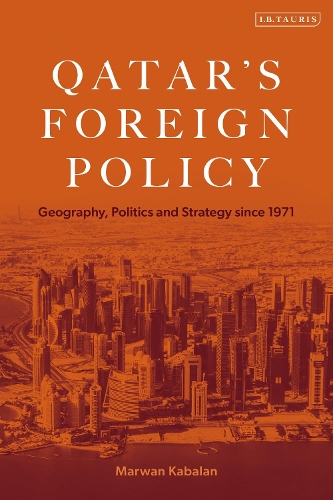
Qatar's Foreign Policy: Geography, Politics and Strategy since 1971
(Hardback)
Publishing Details
Qatar's Foreign Policy: Geography, Politics and Strategy since 1971
By (Author) Marwan Kabalan
Bloomsbury Publishing PLC
I.B. Tauris
20th February 2025
United Kingdom
Classifications
Tertiary Education
Non Fiction
Armed conflict
327.5363
Physical Properties
Hardback
304
Width 160mm, Height 236mm, Spine 20mm
576g
Description
This study offers an analysis of Qatars foreign policy since its independence from Britain in 1971. Locked between two vying powers, Iran and Saudi Arabia, and lacking the traditional elements of influence in the regional and international state system such as land, human capital, and advanced industry, Qatar nevertheless wields a disproportionately large amount of regional influence with an assertive foreign policy approach. Here, Marwan Kabalan highlights the strategies pursued by the ruling Qatari elite, especially during the last two decades, and delves into the methods Qatar has used to deal with the structural challenges to its foreign policy. These strategies include financially leveraging its access to crucial resources, such as natural gas, and its manipulation of existing regional frictions. The book also addresses Qatars soft power influence positioning itself as an alternative cultural and intellectual hub in the Arab world, enabling it to take a leading role, particularly as a mediator, in the region. By highlighting Qatars foreign policy strategies and outcomes, Kabalan illustrates how the Qatari case challenges key assumptions of international relations theory which assumes that wealthy small powers tend to pursue passive foreign policies, and that structural forces minimize the role of ruling elites in foreign policymaking.
Author Bio
Marwan Kabalan is Director of Policy Analysis at the Arab Centre for Research and Policy Studies, Qatar. He previously served as Dean of the Faculty of International Relations and Diplomacy at Kalamoon University in Damascus, Syria. He is a co-editor of Turkey-Syria Relations: Between Enmity and Amity (2013) and Syrian Foreign Policy and the United States, From Bush to Obama (2009).
